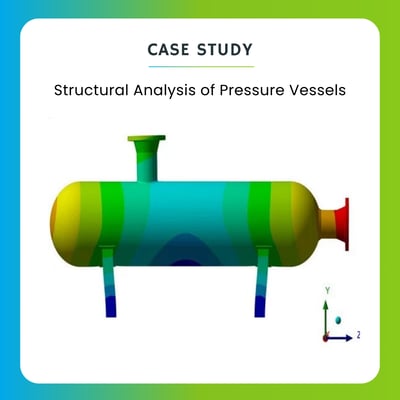In the fast-paced industrial landscape, the challenges faced by sectors such as oil and gas, crude refining, power generation, and cement manufacturing are immense. Tridiagonal has the key technological advancements that have revolutionized these sectors is the application of Fluid Structure Interaction (FSI) analysis.
FSI is a complex phenomenon that occurs when fluid flow causes forces on structures, leading to structural deformations . This intricate interplay between fluid dynamics and structural mechanics is critical in designing and maintaining safe, efficient, and reliable industrial systems. Engineers use coupling of CFD(Computational Fluid Dynamics)-FEA(Finite Element Analysis) to address issues like Vibration and Fatigue Analysis to predict and mitigate the effects of flow-induced vibrations to prevent structural fatigue and extend the life of industrial components. The impact of temperature variations on structural integrity in high temperature environment is assessed doing Thermal –Stress evaluation.
Oil and Gas Industry.
In the oil and gas industry, FSI analysis is crucial for the design and maintenance of offshore platforms, pipelines, and drilling equipment. The harsh marine environment poses significant risks, including powerful waves and currents that can induce vibrations and fatigue in structures. FSI analysis helps in predicting these interactions, ensuring the structural integrity of facilities and preventing catastrophic failures. The crude refining process involves various stages where FSI analysis is indispensable. For instance, the flow-induced vibrations in heat exchangers can lead to tube wear and leakage, causing operational inefficiencies and safety hazards. Expert FSI analysis enables refineries to optimize designs, reduce downtime, and maintain the highest safety standards.
Power Generation
In power generation, FSI analysis plays a pivotal role in the design of turbines, cooling systems, and containment structures. The accurate prediction of fluid-structure interactions ensures the longevity and efficiency of equipment, leading to uninterrupted power supply and reduced maintenance costs.
Cement Industry
The cement industry benefits from FSI analysis in the design of kilns, mills, and dust collection systems. Addressing the challenges of thermal stresses, material buildup, and equipment wear can significantly enhance production efficiency and reduce the environmental impact.
To know how industries can leverage this cutting-edge modeling approach explore more case studies under Multiphysics simulation.
Related Use Cases

Use Cases
CFD Modeling of Bag Filter

Use Cases
PBT Batch Reactor

Use Cases
Evaluating Crude Oil Blending with Jet-Mixers using CFD

Use Cases
Structural Analysis of Pressure Vessels
Have a Question?
If you need assistance beyond what is provided above, please contact us.
